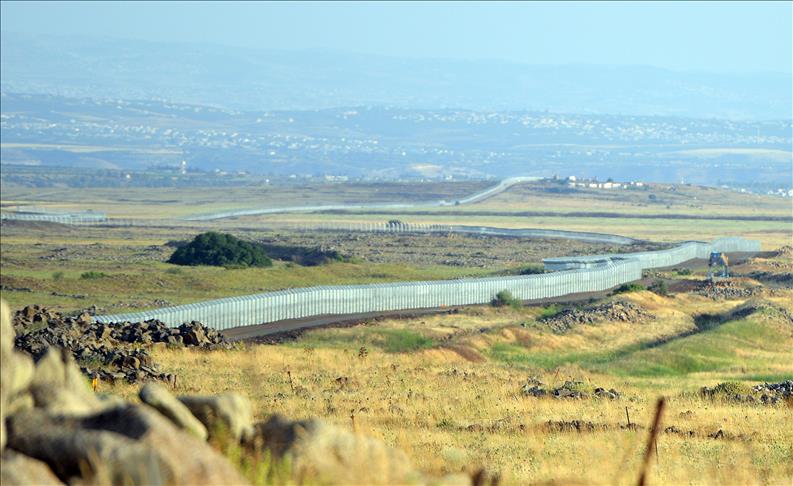
By Selen Tonkus
ANKARA
As Israel gets ready to host oil drilling in the occupied Golan Heights, the licensed company is confident about the legality of the project but experts claim it is an economically non-viable move by the country to further political claims on the disputed region.
In September 2014, Afek Oil and Gas, a subsidiary of U.S.-based Genie Energy Ltd., linked to former U.S. vice president Dick Cheney, initially won Israeli government approval for oil drilling on 153 square miles (400 km sq) of the Golan Heights.
The area, once Syrian territory, was occupied by Israel during the 1967 Six-Day War and annexed in 1981.
Oil drilling will begin in two weeks after equipment arrived on Jan. 1 at the Golan Heights, Syria’s official news agency has claimed.
The move sparked criticism of Israel as the annexation of Golan Heights into Israeli territory is not internationally recognized.
UN Security Council Resolution 242, adopted following the Six-Day War, establishes principles for setting Israeli borders and withdrawal from territories conquered in 1967, including the Golan Heights.
A spokesperson for Genie Energy told The Anadolu Agency that their subsidiary was finally had the exploration license approved in April 2013 after an Israeli High Court battle with environmentalists.
"Now the site construction has begun on the first exploration well and we expect drilling to commence this calendar quarter," he added.
When asked about reserves, the company only said their early estimates suggest the presence of liquid oil but that could only be verified by drilling exploration wells, a process which could last a year.
"We believe that all Afek operations are in compliance with applicable law," said Genie Energy.
‘Economically non-viable’
Paul Wihbey, president of Washington D.C.-based Global Water and Energy Strategy Team, described the project as being clearly ideologically and politically motivated, as the civil war in Syria and the international isolation of the Assad regime has provided Israel with a geopolitical vacuum in the Golan Heights.
"Afek Oil and Gas company intends to exploit this vacuum to its advantage, and to further Israel's claim over the Golan," he added.
However, stated Wihbey, the prospects for finding commercially viable amounts of conventional oil in the Golan are problematic.
"Over 500 oil wells have been drilled in Israel, none successful," Wihbey claims adding that exploratory drilling will go as deep as 2,000 meters and will take up to two years or more, contrary to the company's own claims.
Asked about economic viability of the project, Wihbey said it will cost estimated up to $30 million, adding that operational plans were made over the last few years when oil prices were above $100 a barrel.
"Now we have entered a low-price environment that could last for a prolonged period of time, the economics of this plan will likely be undermined, leading to postponement or outright cancellation of the project."
In the hard world of energy, politically or ideologically driven projects rarely succeed, said Wihbey, adding: "[Such projects] may nevertheless attract investors who calculate out of emotion rather than sound commercial judgment."
The Golan Heights, housing Lake Tiberias, is also Israel's main water source.
Israel has also discovered two natural gas fields near the northern city of Haifa; the Tamar field which is an estimated 280 billion cubic meters, and the bigger Leviathan field, an estimated 530 billion cubic meters in size.
Tamar started production in March 2013, while Leviathan is due to start operating in 2016 or 2017.
Anadolu Agency website contains only a portion of the news stories offered to subscribers in the AA News Broadcasting System (HAS), and in summarized form. Please contact us for subscription options.

